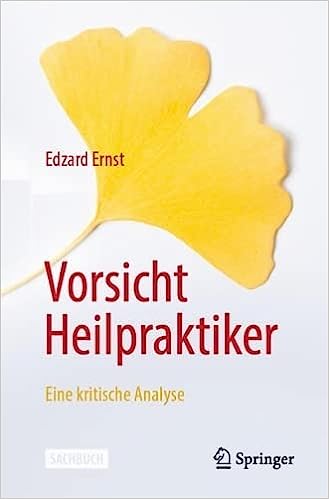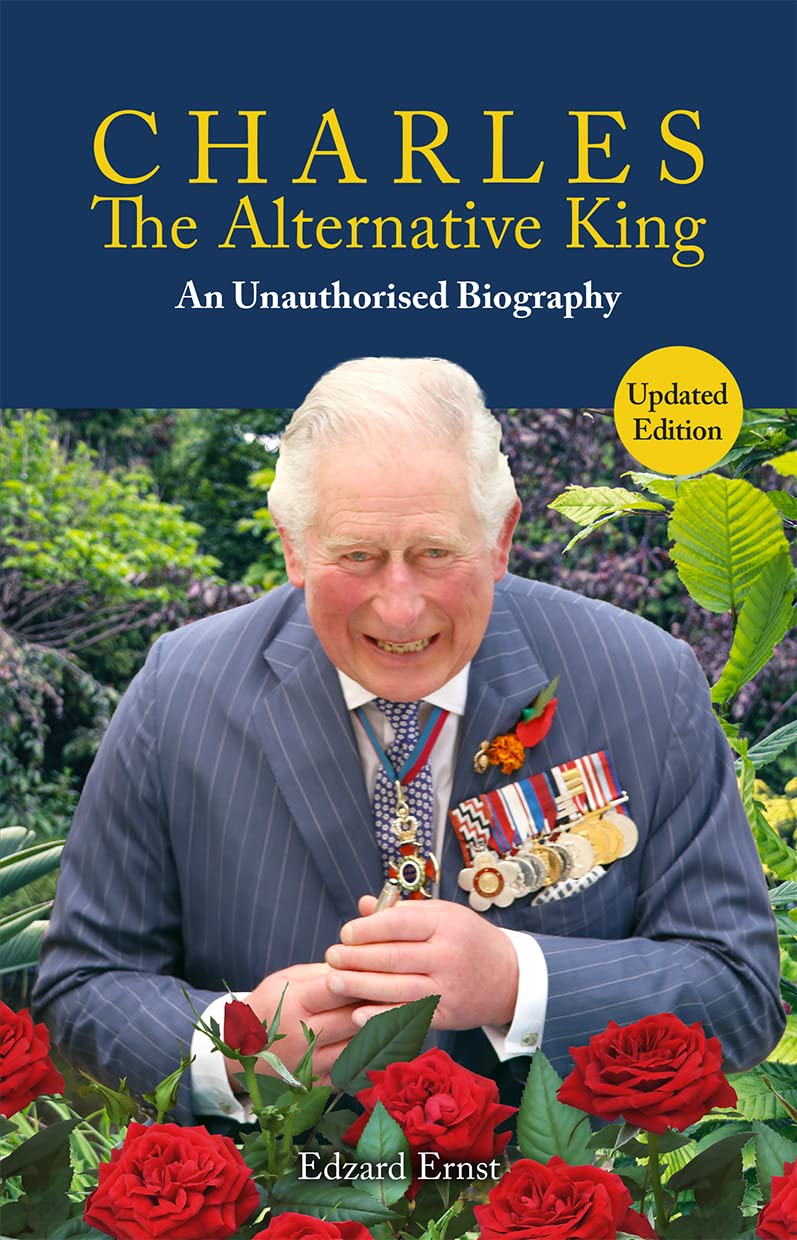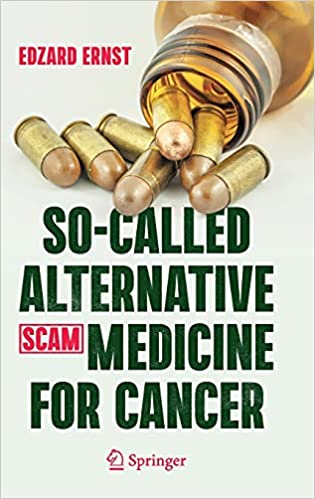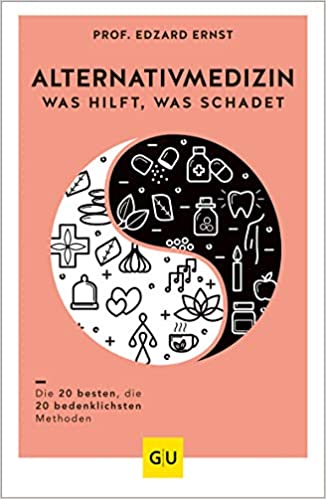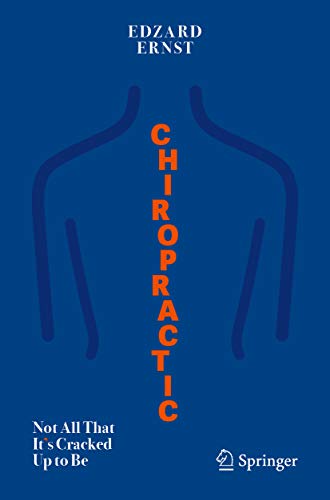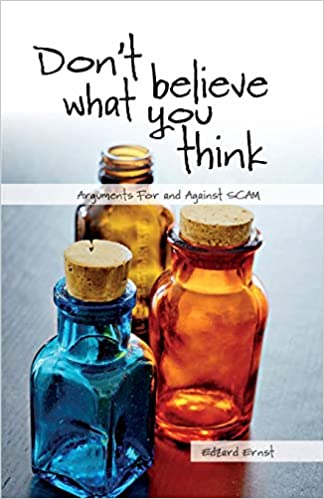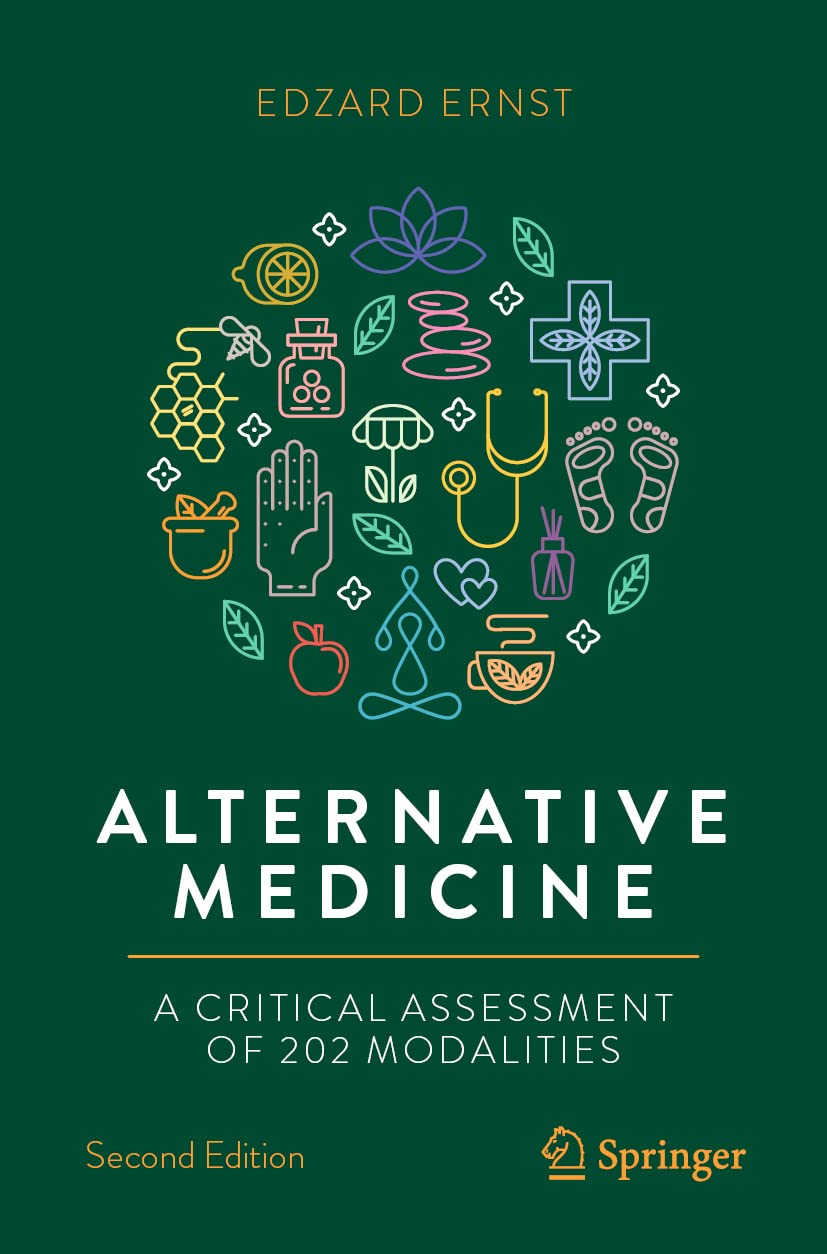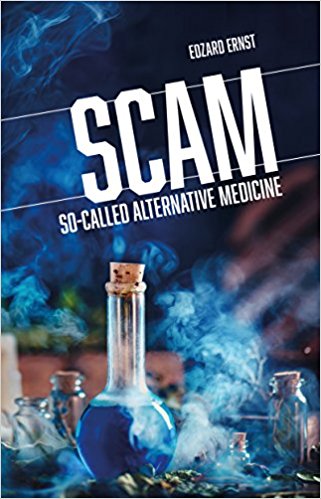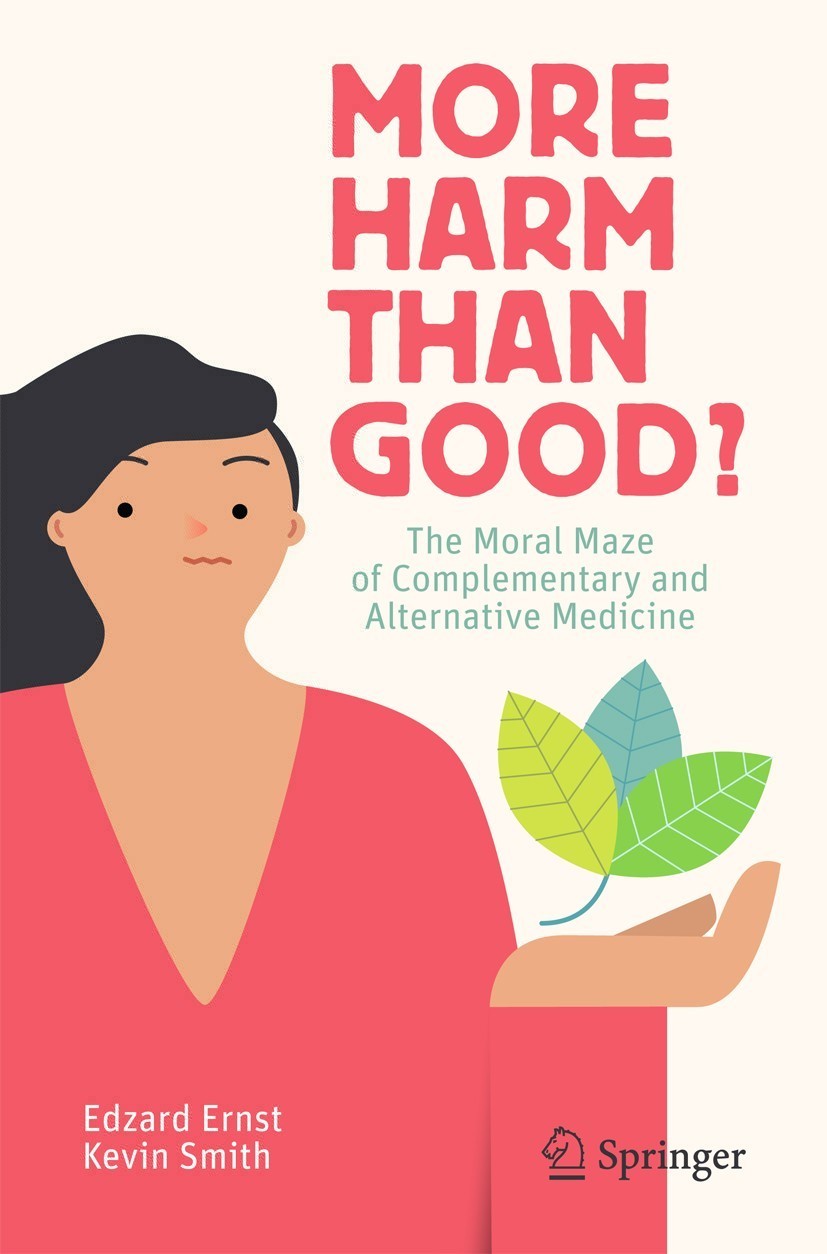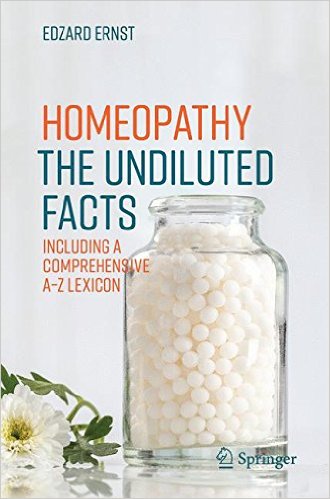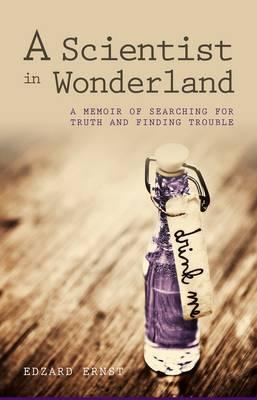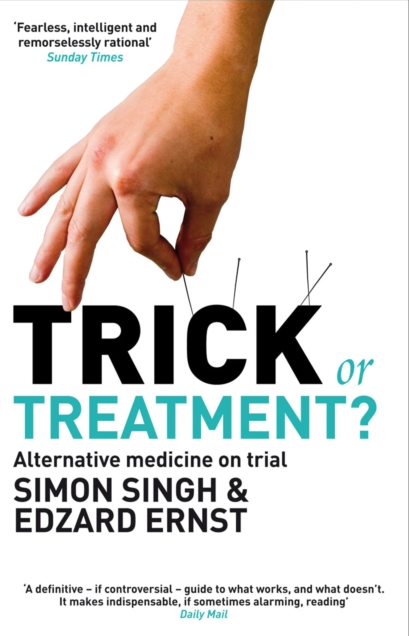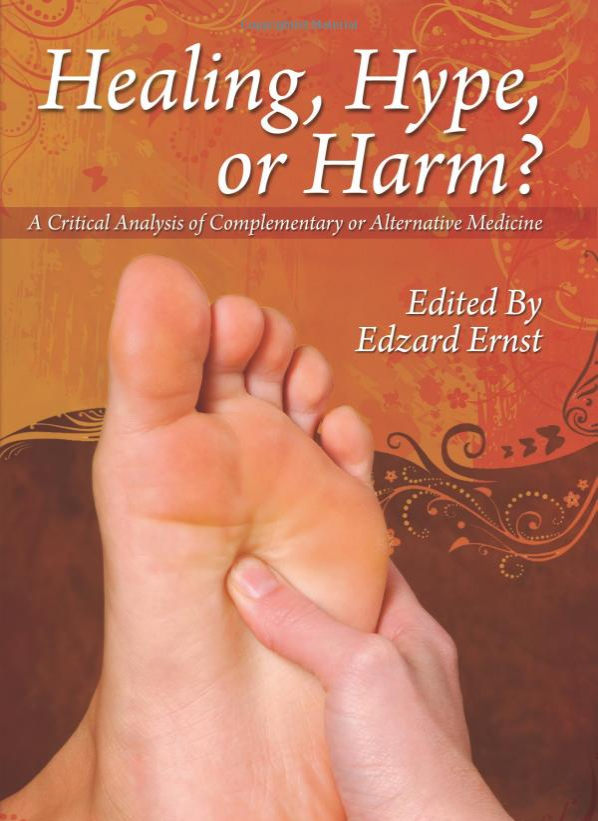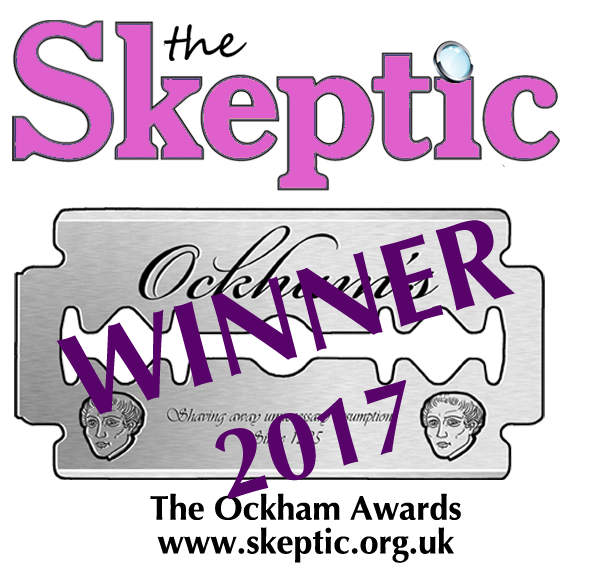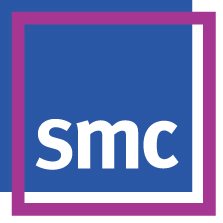In the realm of homeopathy there is no shortage of irresponsible claims. I am therefore used to a lot – but this new proclamation takes the biscuit, particularly as it currently is being disseminated in various forms worldwide. It is so outrageously unethical that I decided to reproduce it here [in a slightly shortened version]:
“Homeopathy has given rise to a new hope to patients suffering from dreaded HIV, tuberculosis and the deadly blood disease Hemophilia. In a pioneering two-year long study, city-based homeopath Dr Rajesh Shah has developed a new medicine for AIDS patients, sourced from human immunodeficiency virus (HIV) itself.
The drug has been tested on humans for safety and efficacy and the results are encouraging, said Dr Shah. Larger studies with and without concomitant conventional ART (Antiretroviral therapy) can throw more light in future on the scope of this new medicine, he said. Dr Shah’s scientific paper for debate has just been published in Indian Journal of Research in Homeopathy…
The drug resulted in improvement of blood count (CD4 cells) of HIV patients, which is a very positive and hopeful sign, he said and expressed the hope that this will encourage an advanced research into the subject. Sourcing of medicines from various virus and bacteria has been a practise in the homeopathy stream long before the prevailing vaccines came into existence, said Dr Shah, who is also organising secretary of Global Homeopathy Foundation (GHF)…
Dr Shah, who has been campaigning for the integration of homeopathy and allopathic treatments, said this combination has proven to be useful for several challenging diseases. He teamed up with noted virologist Dr Abhay Chowdhury and his team at the premier Haffkine Institute and developed a drug sourced from TB germs of MDR-TB patients.”
So, where is the study? It is not on Medline, but I found it on the journal’s website. This is what the abstract tells us:
“Thirty-seven HIV-infected persons were registered for the trial, and ten participants were dropped out from the study, so the effect of HIV nosode 30C and 50C, was concluded on 27 participants under the trial.
Results: Out of 27 participants, 7 (25.93%) showed a sustained reduction in the viral load from 12 to 24 weeks. Similarly 9 participants (33.33%) showed an increase in the CD4+ count by 20% altogether in 12 th and 24 th week. Significant weight gain was observed at week 12 (P = 0.0206). 63% and 55% showed an overall increase in either appetite or weight. The viral load increased from baseline to 24 week through 12 week in which the increase was not statistically significant (P > 0.05). 52% (14 of 27) participants have shown either stability or improvement in CD4% at the end of 24 weeks, of which 37% participants have shown improvement (1.54-48.35%) in CD4+ count and 15% had stable CD4+ percentage count until week 24 week. 16 out of 27 participants had a decrease (1.8-46.43%) in CD8 count. None of the adverse events led to discontinuation of study.
Conclusion: The study results revealed improvement in immunological parameters, treatment satisfaction, reported by an increase in weight, relief in symptoms, and an improvement in health status, which opens up possibilities for future studies.”
In other words, the study had not even a control group. This means that the observed ‘effects’ are most likely just the normal fluctuations one would expect without any clinical significance whatsoever.
The homeopathic Ebola cure was bad enough, I thought, but, considering the global importance of AIDS, the homeopathic HIV treatment is clearly worse.
The Paleo diet is based on the evolutionary discordance hypothesis, according to which departures from the nutrition and activity patterns of our hunter-gatherer ancestors have contributed greatly and in specifically definable ways to the endemic chronic diseases of modern civilization. The assumption is that during the Paleolithic era — a period lasting around 2.5 million years that ended about 10,000 years ago with the advent of agriculture and domestication of animals — humans evolved nutritional needs specific to the foods available at that time, and that the nutritional needs of modern humans remain best adapted to the diet of their Paleolithic ancestors. Today’s humans are said to be not well adapted to eating foods such as grain, legumes, and dairy, and in particular the high-calorie processed foods. Proponents claim that modern humans’ inability to properly metabolize these comparatively new types of food has led to modern-day problems such as obesity, heart disease, and diabetes. They furthermore claim that followers of the Paleolithic diet may enjoy a longer, healthier, more active life.
The Paleo Diet is alleged to work by two fundamental principles:
- Put the optimal nutrition into your body.
- Reduce or eliminate toxins and “interference”.
And what are the results, as claimed by those who promote (and profit from) the Paleo diet? The alleged benefits include:
- Leaner, Stronger Muscles
- Increased Energy
- Significantly More Stamina
- Clearer, Smoother Skin
- Weight Loss Results
- Better Performance and Recovery
- Stronger Immune System
- Enhanced Libido
- Greater Mental Clarity
- No More Hunger/Cravings
- Thicker, Fuller Hair
- Clear Eyes
Critics of the Paleo diet point towards abundant evidence that paleolithic humans did, in fact, eat grains and legumes. They also stress that humans are much more nutritionally flexible than previously thought, that the hypothesis that Paleolithic humans were genetically adapted to specific local diets is unproven, that the Paleolithic period was extremely long and saw a variety of forms of human settlement and subsistence in a wide variety of changing nutritional landscapes, and that currently very little is known for certain about what Paleolithic humans ate.
So, the theories behind the Paleo diet are flimsy and naïve; the most crucial question, however, is does it work?
Overall there is little solid evidence; unsurprisingly, some studies have shown that cardiovascular risk factors can be positively influenced, for instance, in patients with diabetes. But the more specific claims, like the ones above, are not supported by good clinical evidence.
It seems that, yet again, less than responsible entrepreneurs have jumped on a popular band-wagon to exploit the often hopelessly gullible public.
My memoir ‘A SCIENTIST IN WONDERLAND’ has already brought many surprises (and about 20 most flattering reviews). A few days ago, the German version was published entitled ‘NAZIS, NADELN UND INTRIGEN’ (people who have not read it might find this title puzzling). The German publisher reported that the first print-run was sold out in the first 4 days.
In order to tempt you to read my memoir, I publish here the final section of the book which affirms that the link between my rather diverse experiences boils down to ethics.
…the most important link between my research into alternative medicine and that related to the Third Reich was that of medical ethics.
It should be axiomatic that ethics is indispensable to the practice of medicine, and is not something that can just be switched off at will. No branch of health care, including alter-native medicine, can be considered exempt from it. But the subject of ethics is seldom even considered in alternative medicine; many alternative practitioners have never been taught medical ethics, and where training in this area does exist, it tends to be at best superficial. There are thousands of books on alternative medicine but hardly more than a handful cover the subject of medical ethics in any depth. It is perhaps not surprising, therefore, that the principles of medical ethics are routinely ignored and frequently violated by promoters of alternative medicine.
Medical ethics seem to me to be violated, for example: when homeopaths prescribe or recommend homeopathic vaccinations for which there is not a shred of evidence; when chiropractors or other alternative practitioners happily promote bogus treatments for children with asthma or other serious conditions; when practitioners fail to obtain informed consent before commencing their treatments; when Prince Charles sells his “detox tincture” which is unable to eliminate poisons from your body, merely cash from your purse; when quacks inveigle desperate cancer patients by pretending they have found a cure; when pharmacists sell Bach Flower Remedies or other glorified placebos; when applied kinesiologists, iridologists, etc. claim that their baseless diagnostic tests are able to identify serious diseases; when pseudoscientists claim that certain alternative therapies are evidence-based because they managed to generate a false positive result purely by cherry-picking or massaging their data; when politicians who lack even the most basic understanding of science publicly support quackery, proclaiming that it is evidence-based.
And so on, and so on.
Some might criticize me here for claiming the moral high ground. But if I do so, it is for a good reason. Medical consultations are intrinsically unequal, with the clinician occupying a position of considerable power over often highly vulnerable patients. This places an important ethical onus on the caregiver to assist patients in making informed choices—an imperative and a trust that is breached each and every time that unproven nostrums born of ideology and wishful thinking are offered to people with assertions that they are an effective, valid approach to the treatment of disease.
When science is abused, hijacked or distorted in order to serve political or ideological belief systems, ethical standards will inevitably slip. The resulting pseudoscience is a deceit perpetrated on the weak and the vulnerable. We owe it to ourselves, and to those who come after us, to stand up for the truth, no matter how much trouble this might bring.
Today, I look back at the often stormy past from the peaceful vantage point of my retirement with a mixture of satisfaction and incredulity. The doctor and scientist may still be full of questions, but the musician in me breathes a sigh of relief that the performance, with all its impossible demands and fiendishly difficult passages, is finally over.
The Telegraph today reports that, despite relentless lobbying from the Prince of Wales, UK herbalists will not, after all, be regulated by statute. Here are the most important statements from this article:
Prof David Walker, deputy chief medical officer, said he had taken the decision because there was insufficient evidence that the alternative therapy works, making it impossible to set standards of good practice. Three years ago ministers had pledged to bring in an official register of practitioners of herbal and Chinese medicines, which would see therapists regulated alongside other health workers, such as physiotherapists and speech therapists…But ministers blocked the proposals, instead setting up a new committee, led by the NHS deputy chief medical officer – which has now ruled against statutory regulation. The decision came despite lobbying from Prince Charles, a keen advocate of complementary medicines, and a supporter of regulation, who held a meeting with Jeremy Hunt in 2013 in which his concerns were raised…Prof Walker said that although most herbal practitioners were in favour of regulation, those opposed to it feared it would “confer an inappropriate level of legitimacy on herbal practice which was poorly supported by scientific evidence.” He said the decision to rule against regulation was “undoubtedly the most contentious area” addressed by the working party, which also looked at the safety of herbal medicine products. Instead, the report calls for a review of all ingredients sold in such medicines, to check their safety, with a “voluntary register” for practitioners who use them. It says there is too little evidence to show that herbal medicines improve health outcomes, making it “difficult to establish the boundaries of good practice” in regulating practitioners. It also says there is very little understanding of the risks posed to patients from current practices in herbal medicine…Prof Walker’s recommendation has triggered an immediate rift among the 26 members of his working party. Twelve members of the working party have written to Dr Dan Poulter, health minister, alleging that the decision will put the safety of the public at risk, because anyone will be able to promote themselves as an expert in herbal medicine, without any training. Research suggests around three million Britons a year consult herbal practitioners, operating in shops, online and in private clinics, with up to one in 12 of all adults using a herbal medicine at some stage. Michael McIntyre, chairman of the European Herbal and Traditional Medicine Practitioners Association, said the decision not to regulate practitioners could put the public at risk from rogue operators, with no training. The herbal practitioner, who was a member of the DoH working party, said: “We are deeply disappointed by this. We feared this issue was going to be kicked into the long grass, by quietly putting something out just before the election – and that is exactly what has happened.” He said the public needed the reassurance of statutory regulation, to know that any herbal doctor who is practising had received some training. The association disputed claims there was insufficient evidence to show that herbal medicines worked, saying that several trials had shown its impact for a number of conditions, but that the sector had less money than the pharmaceutical industry had to undertake mass research. The report says that although ministers promised “some form of regulation of herbal practitioners” this only committed the working party to consider the options, and that the introduction of regulation would require the sector to be “more science and evidence-based”.
Perhaps I should first state that I was not involved in any way in this process. Furthermore, I must say that I do think it is the right decision. To understand it better, I need to refer to several previous posts: yes, some herbal medicines are demonstrably effective. But the regulation in question is NOT about herbal medicines; it is about herbal practitioners, and the two are not necessarily related. UK herbal practitioners practice within a range of traditions including traditional European herbalism, TCM, or other schools of thought. They differ vastly but have one characteristic in common: they individualise their prescriptions according to the specific characteristics of the patient. Thus they would rarely prescribe the evidence-based herbal medicines but mix up prescriptions composed of several herbal ingredients. The problems with this approach are numerous:
- there is no good evidence that this approach of individualised herbalism is effective;
- the safety of the herbs used by traditional herbalists is often unknown;
- traditional herbalists tend to use obsolete diagnostic techniques, false-positive and false-negative diagnoses are thus inevitable;
- some of the herbal mixtures have been shown to be contaminated with toxic ingredients;
- some mixtures are adulterated with powerful prescription drugs;
- the herbal ingredients could interact with each other in an unpredictable manner;
- the herbal mixtures might interact with prescribed drugs.
The long and short of it is that nobody knows whether the treatments of traditional herbalists generate more good than harm. Regulating these professions by statute would merely give them a level of credibility that they do not deserve. As with the regulation of chiropractors or osteopaths in the UK, the regulation of herbalists would simply misled the public about the value of traditional herbalism, and it most likely would have prompted the herbalists to happily rest on their assumed merits claiming that their effectiveness and safety has been officially acknowledged and is therefore no longer in doubt.
In a nutshell: THE ‘PROPER’ REGULATION OF NONSENSE GENERATES PROPER NONSENSE
The FDA just made the following significant announcement:
The Food and Drug Administration (FDA) is announcing a public hearing to obtain information and comments from stakeholders about the current use of human drug and biological products labeled as homeopathic, as well as the Agency’s regulatory framework for such products. These products include prescription drugs and biological products labeled as homeopathic and over-the-counter (OTC) drugs labeled as homeopathic. FDA is seeking participants for the public hearing and written comments from all interested parties, including, but not limited to, consumers, patients, caregivers, health care professionals, patient groups, and industry. FDA is seeking input on a number of specific questions, but is interested in any other pertinent information participants would like to share.
Date
April 20-21, 2015
Time
9:00 am to 4:00 pm
Location
FDA White Oak Campus
10903 New Hampshire Avenue
Bldg. 31, Room 1503A (Great Room)
Silver Spring, Maryland 20993
Attendance, Registration, and Oral Presentations
Registration is free and available on a first-come, first-served basis. If you wish to attend or make an oral presentation, please reference section III of the forthcoming Federal Register Notice (Attendance and/or Participation in the Public Hearing) for information on how to register and the deadline for registration.
Webcast Information
If you cannot attend in person, information about how you can access a live Webcast will be located at Homeopathic Product Regulation
Agenda
The agenda will be posted soon
And this is what Reuters reported about the planned event:
The hearing, scheduled for April 20-21, will discuss prescription drugs, biological products, and over-the-counter drugs labeled homeopathic, a market that has expanded to become a multimillion dollar industry in the United States. The agency is set to evaluate its regulatory framework for homeopathic products after a quarter century. (http://1.usa.gov/1Hxwup3) An Australian government study released this month concluded that homeopathy does not work. (http://bit.ly/1BheAmR) The FDA issued a warning earlier this month asking consumers not to rely on asthma products labeled homeopathic that are sold over the counter. (http://1.usa.gov/1EEuKrC) Homeopathic medicines include pellets placed under the tongue, tablets, liquids, ointments, sprays and creams. The basic principles of homeopathy, formulated by German physician Samuel Hahnemann in the late 18th century, are based on a theory that a disease can be treated using small doses of natural substances that in a healthy person would produce symptoms of the disease. The agenda for the hearing will be posted soon, the FDA said on Tuesday.
In my view, this is an important occasion for experts believing in evidence to make their position regarding homeopathy heard. I therefore encourage all my readers who have an evidence-based opinion on homeopathy to submit it to the hearing.
Homeopathy has a long history in Canada. In 1842, James Lilli was probably the first Canadian homeopath to begin practicing in Toronto. Joseph J. Lancaster, who had studied in New York, began practicing sometime in the 1840s in Ontario. The ‘Homeopathic Medical Society of Canada’ was established in 1854 in Hamilton, Ontario.
Since these early days much has changed. At present, all health care professions in Ontario are governed by the ‘Regulated Health Professions Act’ which allows all health-care professions the same right to practice. This law upholds the belief that the public has the right to choose what health care it wishes, and that the government should only intervene to regulate where a profession poses a significant risk of harm to the public. Only allopathic professions are currently regulated, and, in Ontario, doctors are censured if they practice homeopathy.
All schools of homeopathy in Canada offer ‘diplomate status’ and all offer three-year, part-time courses (one or two weekends per month plus perhaps one or two evenings per week). There are no legal doctorate or university degree programs for homeopathy in Canada. A doctorate in any field other than allopathic medicine cannot legally be used while practicing homeopathy.
I have been reliably informed that the regulation of homeopathy in Ontario is about to change. A transitional council of the ‘College of Homeopaths of Ontario’ had already been appointed in September 2009. The next step in the regulatory process is now imminent. On April 1 this year, Ontario will proclaim the ‘Homeopathy Act’. The bill will further empower the ‘College of Homeopaths of Ontario’. This regulatory body will hence forth have control over who gets to call themselves a homeopath. In addition, it will also have a complaint tracking system.
This moves comes only days after the ‘Australian National Health and Medical Research Council’ has published the most thorough and independent assessment of homeopathy in the history of this form of alternative therapy. It concluded that homeopathy should not be used to treat health conditions that are chronic, serious, or could become serious. People who choose homeopathy may put their health at risk if they reject or delay treatments for which there is good evidence for safety and effectiveness.
In view of the fact that homeopathy has been disproven as a treatment that fails to have a positive risk/benefit balance, the move of the regulators in Ontario seems pure madness to me. It sends the wrong signal to consumers and gives credibility to a form of quackery.
In a nutshell: EVEN THE BEST REGULATION OF NONSENSE WILL RESULT IN NONSENSE!
If we listen to acupuncturists and their supporters, we might get the impression that acupuncture is totally devoid of risk. Readers of this blog will know that this is not quite true. A recent case report is a further reminder that acupuncture can cause serious complications; in extreme cases it can even kill.
A male patient in his late forties died right after an acupuncture treatment. A medico-legal autopsy disclosed severe haemorrhaging around the right vagus nerve in the neck. All other organs were normal, and laboratory findings revealed nothing significant. Thus, the authors of this case-report concluded that the man most probably died from severe vagal bradycardia and/or arrhythmia resulting from vagus nerve stimulation following acupuncture: To the best of our knowledge, this is the first report of a death due to vagus nerve injury after acupuncture.
In total, around 100 deaths have been reported after acupuncture in the medical literature. ‘This is a negligible small figure’ claim acupuncture fans. True, it is a small number, but it could just be the tip of a much larger ice-berg: there is no reporting system that could possibly pick up severe complications, and in the absence of such a scheme, nobody can name reliable incidence rates. And even if the numbers of severe complications and deaths are small – even a single fatality would seem one too many.
The deaths that are currently on record are mostly due to bilateral pneumothorax or cardiac tamponade. The present case of vagus nerve injury seems to be ‘a first’. Perhaps we should watch out for similar events?
IF WE DON’T LOOK, WE DON’T SEE.
The other day, I received a request from THE GUARDIAN: could I write a piece on homeopathy in relation to the Australian report which had just come out; they gave me ~700 words and all of 3 hours to do it. I had an extremely busy day, but accepted the challenge nevertheless.
My article was published the next day and the ‘headliner’ at THE GUARDIAN had elected to call it There is no scientific case for homeopathy: the debate is over.
What followed was a flurry of debate – well over 2200 comments – which was more than a little ironic, considering the headline.
Essentially, my article had repeated the well-rehearsed arguments which have so often been made on this blog and elsewhere:
• Our trials failed to show that homeopathy is more than a placebo.
• Our reviews demonstrated that the most reliable of the 230 or so trials of homeopathy ever published are also not positive.
• Studies with animals confirmed the results obtained on humans.
• Surveys and case reports suggested that homeopathy can be dangerous.
• The claims made by homeopaths to cure conditions like cancer, asthma or even Ebola were bogus.
• The promotion of homeopathy is not ethical.
The comments that followed were mixed, of course; those that disagreed with me used a range of counter-arguments; in no specific order, these were the following:
- For several reasons, I cannot be trusted.
- I even once stated that I have treated my wife homeopathically.
- The Australian report was neither thorough nor reliable.
- The Australian expert panel were bought by Big Pharma.
- Homeopathic treatment must be individualised and can therefore not be tested in RCTs.
- Just because we don’t understand how homeopathy works, we should not conclude that it is ineffective.
- 200 years of positive experience with homeopathy clearly prove that it works.
- The huge popularity of homeopathy worldwide demonstrated its effectiveness.
- The fact that some very clever people support homeopathy shows that it works.
- Homeopathy works in animals and little children, therefore it cannot be just a placebo.
- The Queen and my aunt Doris use homeopathy.
- Placebos work.
- Patients must be able to choose; patient choice is an important principle in all health care.
- There’s more to evidence than just RCTs.
- Homeopathy works like vaccines.
With such an abundance of counter-arguments, the debate is clearly NOT over! Or is it? Let’s see how solid the arguments really are.
1) I cannot be trusted
Ad hominem attacks are no arguments at all; they are merely a sign that the person using them has no real arguments left.
2) I treated my wife homeopathically
This is true. At one stage in my life, I treated anyone who couldn’t run fast enough to escape me with homeopathy. What does that show? It simply shows that I can make mistakes too.
3) The Australian report was flawed
Perhaps it was not entirely faultless (no report ever is), but it certainly was rigorous – more so than any previous document in the entire history of homeopathy. If it excluded certain types of evidence, like the observational studies (which are so much loved by homeopaths), it did so because such data are wide open to bias.
4) The panel was not independent
Yes, it was! It even included a homeopath. The Australian National Health and Medical Research Council is internationally highly respected, and to defame it without evidence is, in a way, just another ad hominem attack.
5) Homeopathy must be individualised
This is a half-truth: classical homeopathy is mostly individualised, but lots of homeopathic prescribing is not individualised. And in any case, we have recently seen how totally unconvincing the results of strictly individualised trials of homeopathy are. This argument turns out to be a red herring.
6) We currently don’t understand how homeopathy works
What we do understand perfectly well, however, is the fact that no explanation exists which would not require throwing over board big chunks of the laws of nature. But even if we accepted that the mode of action is unknown, this would not change the lack of homeopathy’s clinical effectiveness. Lots of treatments work without us understanding how.
7) Experience shows it works
Experience is a very unreliable indicator of effectiveness; there are simply far too many confounders such as placebo effects, regression towards the mean or natural history of the disease. This is why we need evidence to be sure, and historically medicine finally started making progress when this lesson had been learnt.
8) The amazing popularity of homeopathy is proof of its effectiveness
This is the ‘argumentum ad populum’ fallacy. Think of the popularity of blood-letting to see how wrong this argument can be.
9) Homeopathy is backed by some very clever people
So what? Clever people are not always correct – look at me (just joking!)
10) Homeopathy works in animals and little children which proves that it is more than a placebo
First, animals and children do also show placebo-responses.
Second, the animal owner/parent might respond to placebo and thus mimic a placebo-response in the patient.
Third, the evidence for homeopathy is not positive neither in animals nor in children.
11) The Queen swears by homeopathy
Yes, so much so that, as soon as she is really ill, she makes use of what the very best of conventional medicine has to offer.
12) Placebos work
For sure! But that does not mean that we should prescribe placebos. If an effective treatment is given with compassion and empathy, the patient will also profit from a placebo effect – in addition to the effect of the treatment. Merely administering placebos means withholding the latter and is thus not in the best interest of the patient.
13) Patient choice
Yes, patient choice is important. However, it only applies to the choice between treatments that are demonstrably effective – if not choice becomes arbitrariness.
14) Evidence is more than just RCTs
True, there are many study designs other than RCTs. They all have their place in research – but when the research question is to test whether a treatment is effective beyond placebo, they are all open to different types of bias. The one that minimises bias best and thus produces more reliable findings than any other study design is the placebo-controlled, double-blind RCT.
15) Homeopathy works like vaccines
No! The ‘like cures like principle’ appears to be similar to the principles of vaccination, but this appearance is misleading. Vaccines contain small amounts of active material, while the typical homeopathic remedy doesn’t. Vaccines use the substance that causes the illness, e. g. (parts of) a virus, while homeopathy doesn’t.
So, is there still a debate? Obviously there is – the Guardian headliner was wrong – but it is a debate without reasonable arguments. And in the public domain, the debate is dominated by enthusiasts who endlessly repeat nonsensical notions which have been shown to be wrong over and over again.
In a nutshell:
Yes, there continues to be a debate.
No, there is no reasonable debate.
I have argued since many years that pharmacists should not be selling or promoting homeopathic and other remedies for which there is no proof of efficacy – the last time I published my view on this matter is even less than a week ago: Personally, I would go another step further and remind pharmacists who sell homeopathic remedies to the unsuspecting public that it is unethical to pretend they are more than placebos.
Despite my insistence and despite the fact that many agree with me (at least privately), there are precious few pharmacists who actually do something meaningful about the current situation. And there is very little visible change: in the UK, it is currently hard to find a pharmacy where homeopathic remedies are not on the shelves, and certainly all the major chains seem to put money before health care ethics.
I am, of course, speaking about the situation in the UK, France, Germany and some other European countries. Perhaps elsewhere things are different?
A NZ website seems to indicate that ‘down under’ the pharmacists are getting more active. Some strongly argue against unproven or disproven remedies in pharmacies:
Firstly, …it’s not a case that “pharmacists ‘should’ only be selling health products for which there is credible evidence of efficacy” (alterations mine, emboldened) but that they are obliged to—but choose not to. Their ethical guidelines state –
[PHARMACISTS] MUST:… Only purchase, supply or promote any medicine, complementary therapy, herbal remedy or other healthcare product where there is no reason to doubt its quality or safety and when there is credible evidence of efficacy.
…Secondly, the argument that ‘other businesses sell junk remedies therefore we shall’ is unsound. One of the key points about the ethical regulations for pharmacies is that customers should be able to walk into a store and have an expectation that the remedies within the store are basically sound. If other businesses elect to be unsound, that’s poor health practice, but no justification to do likewise. On the face of it, it would seem that the profit motive is ruling over sound and ethical practice.
Thirdly, that some GPs subscribe placebos should have no standing in this. There is some arguments for GPs to prescribe placebo remedies in some cases; others would argue that education is a better response in most cases. Either way—and just my opinion—it seems to me that GPs prescribing homeopathic remedies encourages people to think these have real remedial effects. I don’t work within the industry, but I am sure are ways of offering placebos that avoid using off-the-shelf commercial products. One might be that patients only get placebo ‘treatments’ via prescription.
…Fourthly, Pharmacy Today encourages that “pharmacies need to reconsider their stance in the light of this report”***. While this is an excellent idea, and one I thoroughly support, I suspect the underlying driver isn’t the report, but media presence on the topic. There is a long trail of evidence over many years showing that homeopathic remedies are not effective for anything.
The Australian study*** that prompted the latest round of interest drew this statement,
Based on the assessment of the evidence of effectiveness of homeopathy, NHMRC concludes that there are no health conditions for which there is reliable evidence that homeopathy is effective.
Homeopathy should not be used to treat health conditions that are chronic, serious, or could become serious. People who choose homeopathy may put their health at risk if they reject or delay treatments for which there is good evidence for safety and effectiveness. People who are considering whether to use homeopathy should first get advice from a registered health practitioner.* Those who use homeopathy should tell their health practitioner and should keep taking any prescribed treatments.
The National Health and Medical Research Council expects that the Australian public will be offered treatments and therapies based on the best available evidence.
…Why were the relevant professional bodies not onto this evidence sooner?…
GOOD QUESTION!
I might add another one: why are the European professional bodies of pharmacy doing so little about this ongoing breach of their own ethical codes?
(*** the report that the author refers to is the one by the Australian National Health and Medical Research Council we discussed on this blog a few days ago.)
My memoir ‘A SCIENTIST IN WONDERLAND’ continues to get rather splendid reviews. On 23 March, it will be published also in a German edition. Probably a good time to post another short excerpt from it.
The following episode gives just one of many examples of attempts by my Exeter peers to sabotage my scientific, moral and ethical standards. The players in this scene are:
- Prof John Tooke, at the time dean of my medical school,
- Dr Michael Dixon, GP in Devon,
- Nelson’s homeopathic pharmacy, known from my previous post,
- Mr Simon Mills, former director of the Centre for Complementary Health Studies, University of Exeter,
- Prince Charles, future king of England.
By the year 2000, I began to experience unnecessary unpleasantness at Exeter on a more and more regular basis. This passage from my book describes the key moment when it became clear to me that something profoundly wrong was going on:
The watershed came in 2003, when I saw an announcement published in the newsletter of the Prince of Wales’ Foundation for Integrated Health:
“The Peninsula Medical School aims to become the UK’s first medical school to include integrated medicine at postgraduate level. The school also plans to extend the current range and depth of programmes offered by including healthcare ethics and legislation. Professor John Tooke, dean of the Peninsula Medical School, said: “The inclusion of integrated medicine is a patient driven development. Increasingly the public is turning to the medical profession for information about complementary medicines. This programme will play an important role in developing critical understanding of a wide range of therapies”.
When I stumbled on this announcement, I was truly puzzled. Tooke is obviously planning a new course for me, I thought, but why has he not told me about it? When I enquired, Tooke informed me that the medical school was indeed preparing to offer a postgraduate “Pathway in Integrated Health”; this exciting new innovation had been initiated by Dr Michael Dixon, a general practitioner who, after working in collabora-tion with my unit for several years, had become one of the UK’s most outspoken proponents of spiritual healing and other similarly dubious forms of alternative medicine. For this reason, Dixon was apparently very well regarded by Prince Charles.
A few days after I had received this amazing news, Dixon arrived at my office and explained, with visible embarrassment, that Prince Charles had expressed his desire to him personally to establish such a course at Exeter. His Royal Highness had already facilitated its funding which, in fact, came from “Nelsons”, one of the UK’s largest manufacturers of homeopathic remedies. The day-to-day running of the course was to be put into the hands of the ex-director of the Centre for Complementary Health Studies (CCHS), the very unit that, almost a decade earlier, I had struggled—and eventually even paid—to be separated from because of its overtly anti-scientific agenda. The whole thing had been in the planning for many months. I was, it seemed, the last to know—but now that I had learnt about it, Dixon and Tooke leaned on me with all their might to persuade me to contribute to this course by giving a few lectures.
I could no more comply with this request than fly. Apart from anything else, anyone who had read my papers would have known that I was opposed in principle to the concept of “Integrated Health”. As I saw it, “integrating” quackery with genuine, science-based medicine was nothing less than a profound betrayal of the ethical basis of medical practice. By putting its imprimatur on this course, and by offering it under the auspices of a mainstream medical school, my institution would be encouraging the dangerously erroneous idea of equivalence—i.e. the notion that alternative and mainstream medicine were merely two parallel but equally valid and effective methods of treating illness.
To add insult to injury, the course was to be run by someone who I had good reason to reject and sponsored by a major manufacturer of homeopathic remedies. In all conscience, the latter circumstance seemed to me to be the last straw. Study after study carried out by my unit had found homeopathy to be not only conceptually absurd but also therapeutically worthless. To all intents and purposes, the discussion about the value of homeopathy was closed. Even a former director of the Royal London Homeopathic Hospital had concluded in his book that “homeopathy has not been proved to work… the great majority… of the improvement that patients experience is due to non-specific causes”. If we did not take a stand on this issue, we might as well give up and go home. Consequently, I politely but firmly declined the offer of participating in this course.
By now numerous other incidents of a similar nature had poisoned the atmosphere at my own medical school and university so much that both my work and my health were suffering. How had it come to this? Why was even the most obvious and demonstrable truth being turned upside down so that it could be used against me? Why were my peers seemingly bent on constraining me and making life increasingly difficult for me?
